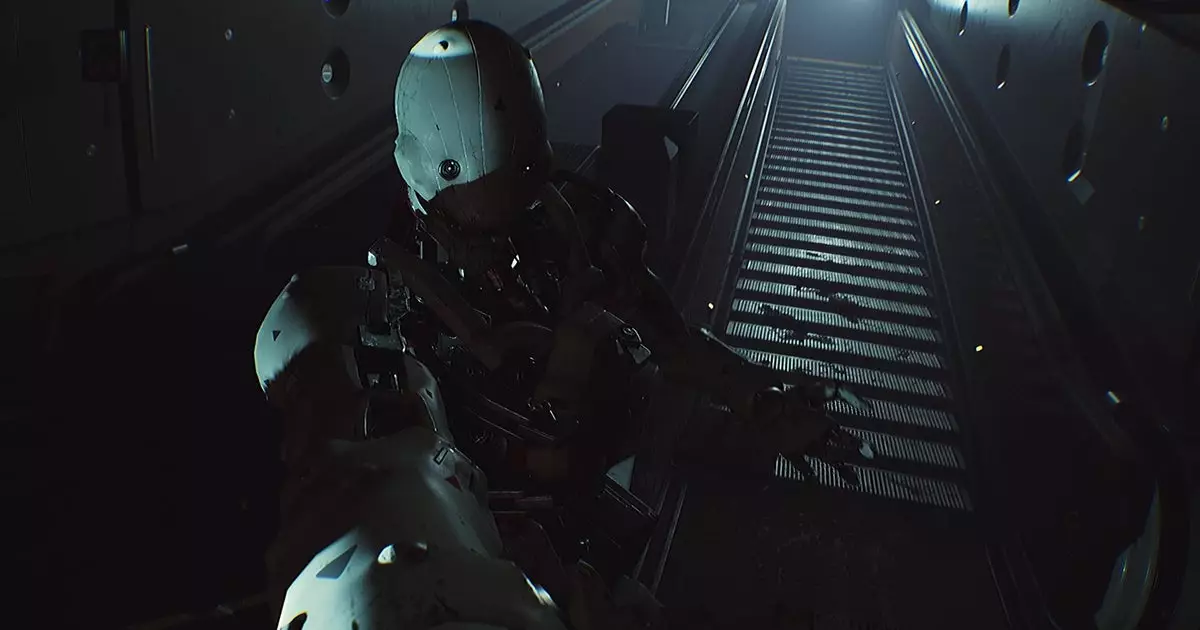The saga of Routine exemplifies relentless determination in the face of prolonged development delays and shifting industry trends. Initiated as an ambitious homage to 80s sci-fi horror, this project has endured nearly a decade of silence—an eternity in the fast-paced gaming universe. What’s most striking about Routine’s journey isn’t just the game’s premise but the unwavering commitment of its core team to see it through. While many titles may falter under the weight of such an extensive production cycle, Routine stands as a testament to passion and perseverance, qualities often undervalued in an era obsessed with rapid release cycles and instant gratification.
The development team, consisting of merely three main members supplemented over time, exemplifies how small, focused groups can carry high-stakes projects, despite resource constraints. Their cautious approach—to avoid setting premature release expectations and to remain adaptable—indicates maturity and self-awareness seldom seen in similarly troubled projects. This patience suggests that Routine isn’t intended to be a fleeting trend but rather a polished piece crafted with care and purpose. It’s a gamble—a belief that quality and vision will ultimately triumph over convenience and speed.
The Core Experience: Nostalgia Cloaked in a Futuristic Horror
Routine promises more than just another first-person adventure; it seeks to solidify a unique atmosphere rooted in nostalgia for early sci-fi horror classics. Its visual aesthetic, reminiscent of 80s futurism intertwined with modern horror sensibilities, places players in a surreal lunar environment filled with an eerie blend of familiarity and uncanny dread. The moon base, with its built-in plazas, arcades, and malls, encapsulates a decayed utopia—once bustling with potential, now haunted by the mechanical sentinels that hunt the corridors with relentless precision.
The gameplay, centered around exploration and survival, emphasizes tense moments over action-heavy sequences. Armed with a Macintosh-like scanner, players are tasked with investigation and reconnaissance, but this seemingly innocuous device offers little against the increasingly aggressive robotic foes. The design choice suggests a deliberate focus on atmosphere—placing players in an unfamiliar, isolating environment where technological familiarity morphs into danger. Ultimately, Routine challenges players to confront the unknown, blurring the lines between nostalgia and nightmare.
Progress Amid Uncertainty: A Reflection on Delayed Dreams
Nearly a decade into development, Routine’s story is also a narrative of patience and hope—an unfulfilled promise hanging in the balance. The recent updates from Lunar Software affirm that the game remains very much alive, still inching toward completion. Their cautious language—acknowledging the hardships, emphasizing focus, and refusing to declare a definite release window—speaks to an understanding that rushing the process would undermine the quality they aspire to deliver.
The departure of Mick Gordon, famed for his work on Doom, marked a setback, but also demonstrated the team’s resilience. Instead of yielding to disappointment, they chose to adapt, with new audio talent stepping in to carry forward the sonic vision. These moments highlight the complexities of indie development—how collaboration, talent, and perseverance must coalesce perfectly for success. It also underscores a broader industry truth: that even highly promising titles can suffer from untimely setbacks, yet those setbacks can be overcome with strategic patience and a clear vision.
The Future of Routine: A Hopeful Requiem
Compare Routine’s quiet, marathon-like development arc to the fate of its contemporaries like Fort Solis and The Callisto Protocol—titles that faced high expectations but faltered under the pressure of release. In stark contrast, Routine’s prolonged gestation invites speculation about a game that has matured into something potentially more refined. The game’s careful evolution suggests that when it finally emerges, it could surpass initial expectations, delivering a haunting, atmospheric experience rooted in a nostalgic reverence for the genre’s golden age.
For passionate fans of survival horror and sci-fi, Routine remains a beacon of hope—a reminder that ambition, when rooted in resilience, can eventually produce something truly meaningful. The recent reassurance from the developers hints at a future not lost to time but waiting to be unearthed. Whether Routine will ultimately fulfill its promise or remain a testament to the challenge of indie game development, its story highlights the importance of patience, belief, and the unwavering pursuit of one’s creative vision, no matter how long the road may be.

